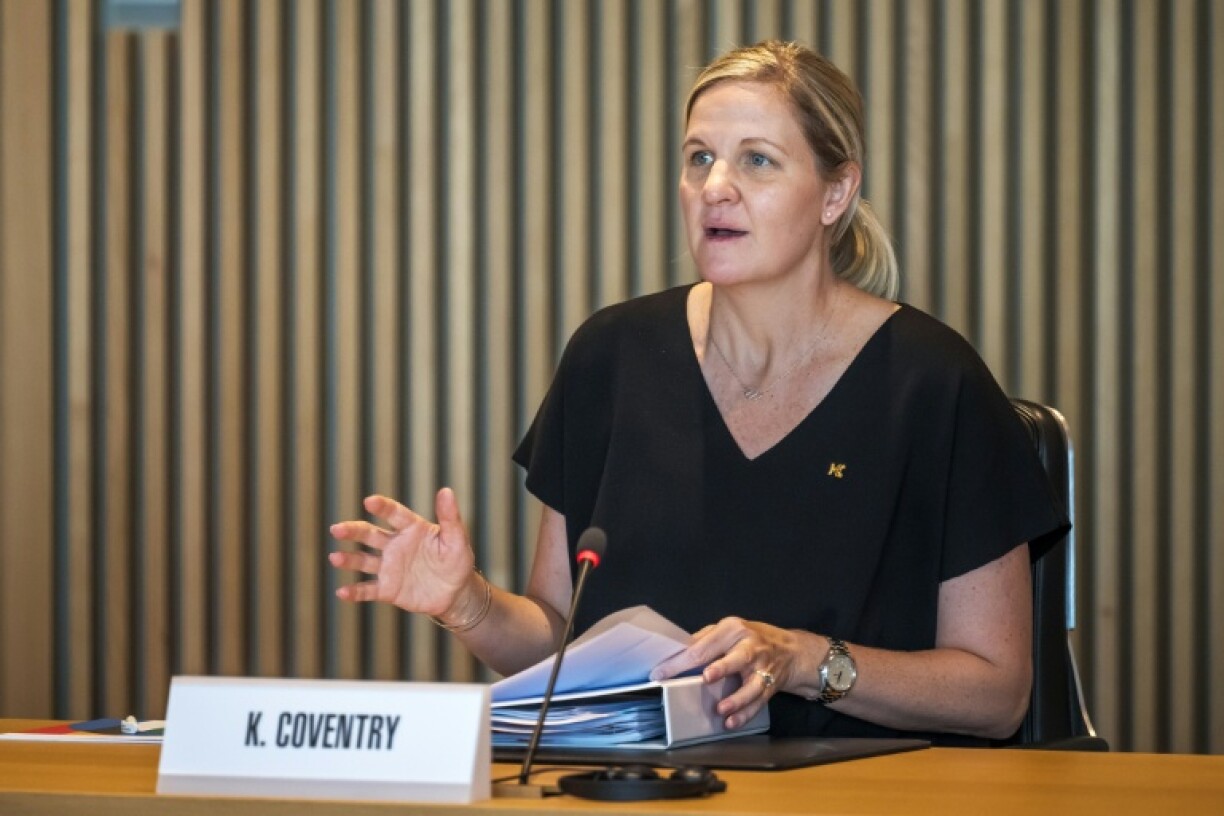
The International Olympic Committee on Friday announced that athletes from Russia will once more be allowed to compete at the 2026 Winter Olympics under a neutral banner if they meet strict conditions.
“The Executive Board will take the exact same approach that was done in Paris,” said IOC president Kirsty Coventry, referring to last year’s Olympics where Russian athletes could only take part under a neutral flag and in individual events.
Those athletes were also required to undergo checks to prove they did not actively support the war in Ukraine or have any links with the army.
They will not be allowed to take part in the opening ceremony for the Milan-Cortina Games, which will be held from February 6-22, nor will their achievements be recognised in the medals table.
The sanctions were introduced in response to Russia’s invasion of Ukraine in 2022. The same measures also still apply to athletes from Belarus, an ally of Moscow.
The decision at a meeting in Milan on Friday to stick with the same policy was “expected”, Russia’s Sports Minister Mikhail Degtyarev said on the Telegram social media channel.
He also paid tribute to “the measured approach” of the IOC president, “according to whom military conflicts cannot serve as a pretext for division in sport as there are many in the world and different countries are implicated”.
Coventry had played a part in the adoption of last year’s solution for the Paris Olympics.
“I believe that it’s best for our movement to ensure that we have all athletes represented,” Coventry said in March when she was elected head of the IOC.
The limited presence of Russians and Belarusians in the French capital satisfied the Olympic body: bringing together athletes from around the world while avoiding a boycott by Ukraine and its closest allies.
Only 15 Russians and 17 Belarusians competed in Paris, winning a combined five medals.
The size of the neutral delegation now depends on the international sports federations, which are responsible for the qualification process and some of which continue to ban Russians and Belarusians from their competitions.
- Russia’s chequered past at Olympics -
Sporting powerhouse Russia has been deprived of its colours in the Olympic arena since 2016, initially due to the state-orchestrated doping scandal.
Its athletes competed under the Olympic flag in 2018 and then that of the Russian Olympic Committee at the Covid-delayed Tokyo Olympics in 2021 and the Winter Games in Beijing the following year.
Russian forces invaded Ukraine days after the 2022 Olympics, triggering sanctions from the IOC.
Russia and Belarus have since been banned from hosting international competitions on their soil, and their flags, anthems and officials have been banned from world sport.
As for the athletes, they were initially excluded “for their own protection”, according to the IOC, before being gradually reinstated from March 2023 onwards.
It remains to be seen how winter sports federations will respond to the IOC’s decision Friday.
Some have maintained a total ban on Russians. These include the International Ski Federation (FIS), whose disciplines account for more than half of the podium places at the Winter Olympics.
The International Biathlon Union (IBU) is taking the same line, as is the International Luge Federation (FIL), which conducted an anonymous survey among its athletes revealing “their concerns about safety, Olympic quotas, compliance with anti-doping regulations and fairness” in the event of a Russian return.
The organisation governing skating, the ISU has opened a narrow path to Olympic qualification, allowing one competitor from each of the two nations in each category, but no entries in relays or team events.